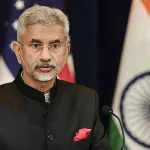DOUBLE STANDARDS
Morality has long stood as the ornamental crown of human civilization. Societies build laws around it, institutions defend it, and individuals wear it like a badge of honor. In theory, it is the conscience of the collective—the still, small voice that guides communities toward justice, empathy, and decency. But in practice, morality has too often been forged into a mask. A mask not to reveal our integrity, but to hide our duplicity. Behind the façade of moral pronouncements lies a deep chasm of hypocrisy, where virtue is selective, and condemnation is often driven not by ethics, but by convenience.
History overflows with such contradictions. Empires spoke of nobility while conquering lands and enslaving people. Religious orders spoke of humility while amassing wealth and enforcing dogma. The powerful have always found ways to redefine morality in their own image—celebrating in themselves what they condemn in others. The result is a moral theatre in which the script is constantly rewritten, and the audience rarely allowed backstage.
In contemporary public life, this hypocrisy has reached a level of stylized normalcy. Politicians extol the virtues of transparency while hiding financial dealings behind complex veils. Leaders speak of the sanctity of truth, only to manipulate facts to preserve image or control perception. The rhetoric is rich with moral fervor, but the reality is littered with contradictions.
Policies that preach equality often perpetuate disparity. Public officials who decry corruption frequently turn a blind eye to it when committed by their allies. The moral high ground, in such contexts, becomes less a position of principle and more a strategy of control.
This duality is no less glaring in the media. Once revered as the watchdog of truth, modern media often mutates into a marketplace of selective storytelling. The sins of the powerful are diluted, rephrased, or ignored; the mistakes of the vulnerable are magnified into moral crises.
A scandal involving the elite is treated with caution and euphemism, while a similar offense by an ordinary citizen becomes the subject of moral outrage. The language of morality is twisted to suit the narrative, its tone growing louder or softer depending on who is being judged.
Social activism, too, while a beacon of hope in many ways, is not immune to the temptations of moral showmanship. There are countless activists who sacrifice comfort and safety to stand by their cause, but there are also those for whom activism is merely aesthetic—a digital costume worn during trending moments.
Hashtags replace hard work. Outrage becomes performative. The activist persona, curated with precision, often conceals a lack of consistency or deep engagement. Causes are adopted with fervor, then dropped when the spotlight fades. Here, morality is not a commitment, but a currency exchanged for visibility.
Hypocrisy in moral posturing finds fertile ground in educational institutions and family structures as well. In homes, children are taught the value of honesty, but watch adults lie to save face or gain advantage. They are instructed to respect others, yet see prejudice practiced within their own walls.
In schools, students are told to uphold integrity, but often witness favoritism and unfairness being rewarded. Rules are bent for the privileged and rigidly enforced for the rest. These early lessons in double standards sow confusion, planting in young minds the idea that morality is not about what is right, but who is right—or rather, who is powerful enough to define what is right.
The hypocrisy deepens when it comes to gender and social roles. Societies frequently impose rigid moral codes on women while offering leniency to men. Modesty, virtue, and obedience are demanded of women as proof of character, while ambition or assertiveness are deemed threats to social order. Meanwhile, male transgressions are often rationalized as lapses, not sins. In such cases, morality serves as a leash to control, not a light to guide. It becomes a weapon aimed downward, never upward.
Religious institutions, across the spectrum, have been both the originators of profound moral thought and the incubators of dangerous moral hypocrisy. Faiths that began as revolutions of compassion and justice are, over time, often institutionalized into systems that preserve hierarchy and silence dissent.
The original teachings—rich with empathy and self-inquiry—are sometimes repackaged into rigid doctrines that elevate ritual over reflection. Moral codes are preached passionately but broken quietly. The moral voice that once echoed from the mountaintops now murmurs behind closed doors, only loud when convenient.
At the heart of such widespread hypocrisy lies a fundamental contradiction: we desire to appear moral more than we desire to be moral. The appearance is praised, the posture rewarded, the performance applauded. It is easier to declare a value than to embody it, easier to criticize others than to confront ourselves.
We shout about justice, yet shy away from sacrifice. We demand truth from others, yet guard our own lies. And in doing so, we reduce morality to a spectacle—a theatre of virtue without the soul.
Yet despite this performative decay, the possibility of authentic morality remains. It exists not in proclamations, but in practice. Not in public gestures, but in private choices. True morality is often invisible—found in the quiet refusal to compromise, the courage to speak an unpopular truth, the decision to help when no one is watching. It is found in those who are consistent, who apply the same standards to themselves that they do to others, who resist the temptation to weaponize virtue.
The way back from hypocrisy is not through more posturing, but through greater introspection. It begins when we ask uncomfortable questions: Do we live what we preach? Are we morally consistent or just socially convenient? Do we extend compassion only to those who look like us, think like us, vote like us—or do we see the human in all? Are we willing to lose comfort to uphold principle? These questions, if answered sincerely, can unsettle the foundation of moral double standards.
In the end, morality is not a declaration—it is a discipline. It is not loud, it is luminous. It is not rigid, but deeply rooted. It does not demand perfection but asks for honesty. It knows we will fall, but insists we rise with humility and conviction. To be moral is not to be flawless, but to be faithful to one’s conscience even when it costs.
The world does not need more moral theater. It needs more quiet acts of courage. It needs fewer declarations of goodness and more demonstrations of grace. Hypocrisy will always exist, for human beings are fallible creatures. But its power wanes when sincerity returns.
When individuals begin to hold themselves to the standards they expect of others, when communities foster reflection over rhetoric, when institutions are judged not by their proclamations but by their practices—then morality will once again become not a mask, but a mirror.
Let that mirror be clear. Let it reflect not the polished image we present to the world, but the raw, honest self we must learn to face. Only then can we begin to close the gap between what we claim to be, and what we are.
(Author is RK Columnist and can be reached at: [email protected])








